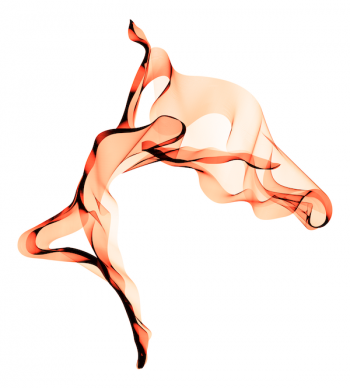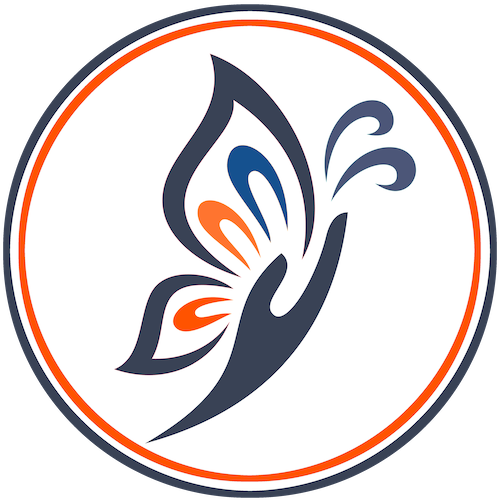Course Info
Are you a massage therapist who is MLD certified
and are you looking for a more rewarding career?
Is doing lymphatic detox massage getting repetitive and doesn’t provide you with enough challenge?
You can become a great
Plastic Surgery Recovery Post-Op Therapy Practitioner
with this detailed course.

Why Train in Post Op Massage?
Lymphatic Drainage Training is Only the Beginning
You may already be MLD Certified, or be a full Certified Lymphedema Therapist (CLT), and you might have run across this page in an effort to prepare for the unexpected post op client that is coming in to see you in a few days. While the courses to become MLD Certified or a CLT are extremely useful (essential, really) in terms of caring for people during their recovery from plastic surgery, it is only the tip of the iceberg. There is so much more to know to be able to serve this niche clientele well.
Acquire Detailed Knowledge and Understanding of Your Clients and Their Unique Needs
This course builds on the lymphatic foundation that you already have by providing you with necessary modifications to technique, introduces you to additional applicable modalities such as kinesiotaping, cupping, myofascial work along with the modifications for using them post operatively, and prepares you for the endless barrage of questions your clients will have for you. These questions are unique to this clientele and you won’t have come across the answers in any previous massage or lymphatic training.
Course Modules
Module 1: Critical Thinking Guidelines for Working with Post Op Clients
Module 2: Your First (Usually Unexpected) Client
Module 3: The Plastic Surgery Recovery Industry
Module 4: Who Are the Clientele?
Module 5: Types of Surgeries
Module 6: Post-Op Challenges
Module 7: Relevant Modalities
Module 8: Compression – An In-depth Look
Module 9: Problems Post-Op – Common, Serious, and Emergency
Module 10: Nutrition, Health, & Complimentary Therapies
Module 11: Setting Up Your Business
Why Should I Take This Course?
This course is designed to cover all aspects of the plastic surgery recovery industry – not just teach you a few helpful tips and tricks.
When I set out to make this course, I wanted to make something comprehensive. As I started to outline what all I knew and what I thought others needed to know, I was truly overwhelmed. I had outlines, mind maps, digital notepads full of random thoughts still to be sorted, and every day I continue to add to that list. There is just so much to cover.
Thankfully, after a great deal of sorting, re-sorting, and sorting again, I came up with a format that makes sense and breaks everything down into easy-to-grasp lessons that give you actionable information in each one.
This Course Teaches Critical Thinking in Addition to Technique
What I am teaching isn’t just a routine for you to follow. Graduates of this course get a firm understanding in the underlying anatomy and physiological issues related to surgery and recovery, and they know how to adapt to the unexpected. While technique is important, therapists working in the post op recovery field are constantly faced constantly with the need to improvise. To improvise successfully, you need to be able to think on your feet. To do that you must know the “hows” and “whys” behind the techniques.
To that end, this class teaches you how to think for yourself rather than to merely copy my particular massage routine. Depending on who you have on your table, modalities I teach may or may not be appropriate. For example: When did the client have surgery? What are their complaints? Are there any other concerns that need to be taken into account? Depending on how you answer these questions, you may come up with 5 different ways to treat 5 different people who all had the exact same surgery. This course teaches you how to figure those things out for yourself when those clients are on your table.
How This Course Is Different
This Course is Comprehensive & Stays in Scope of Practice for Massage Therapists
This course takes you from being a complete novice to being competent in all aspects of plastic surgery post op massage. It gives you everything you need to be successful in this industry while staying in the scope of practice of an LMT.
Unfortunately, there are a number of people offering “post-operative certification” classes that last all of one or two days. These “instructors” do not care about what is legal, what is ethical, or what is safe for clients. These courses often issue “certifications” for a slew of skills in these 1-2 days (lymphatic massage, ultrasound cavitation, radio frequency, wood therapy, taping, seroma draining, incisional drainage, etc.). Anyone who has been through a 40 hour training in MLD knows that there is no way to possibly learn that PLUS a gazillion other therapies in 8-16 hours of training.
Usually these courses are taught by people with very little training of their own. They seek to capitalize on people who just want a quick way to make money. (I know of someone who received this type of training in Arizona from a person who was a makeup artist by trade. !?!?!) In addition to teaching things that are illegal such as incisional drainage, and they teach anyone who wants to learn. They don’t care if the people they are teaching are licensed or not. They just want to make a quick buck off of whomever will pay them.
Taking such courses does not ensure that you truly understand what is happening to a person anatomically and physiologically after surgery. Furthermore, it puts both the client’s health and your license at risk.
This Course Has High Standards
This post op massage course is designed for professional, licensed therapists who are serious about knowing the ins and outs of what it takes to help people recover from plastic surgery. It is designed to help make great therapists even better.
It is my goal to ensure graduates of this program are among the most well-informed post op massage practitioners in the industry who can offer safe and effective therapy. My instruction is geared to help students develop good critical thinking skills because I won’t be there to answer questions during their sessions with their clients.
This course provides a combination of an in-depth knowledge of what is done in the surgeries, the techniques that are appropriate at different stages of the recovery process, a thorough explanation of compression therapy, and the culture of plastic surgery which influences the clientele more than you can imagine – just to name a few things. If you don’t know this last part, you are missing about half of the picture.
My graduates will take this knowledge and learn to make good decisions, especially when the unexpected arises – as it always does when working with the plastic surgery recovery folks. You never know what might walk in your door from one day to the next, and you need to be prepared for it.
Additionally, I require that anyone who takes my course show a valid massage license and an existing Manual Lymphatic Drainage (MLD) certification. Whereas other courses will train whomever will pay them money, it is important to me that graduates of my post op massage course are qualified to receive the training.
The Instructor
The instructor is a LANA-Certified Lymphedema Therapist (CLT-LANA) and Licensed Massage Therapist (LMT) with over 1600 hours of training that prepared her for a career in post-operative recovery.
She has attended several plastic surgeries in person, has done a hands-on course in cadaver dissection, and stays informed on the latest developments in lymphatic, myofascial, and plastic surgery industries.
Course Prerequisites
In order to enroll, you must:
- Hold a current license in good standing as a massage therapist.
- Have a 40 hour minimum base training that includes *hands-on* instruction in Manual Lymphatic Drainage from an accredited institution. (Theory taught online is ok, but there must be the hands on component for learning the skill of MLD.) Examples of these lymphatic schools are: Norton, ACOLS, KLOSE, Vodder, or other similar school. (If you have questions, reach out to me. There are more decent programs out there, but it is difficult to provide an extensive list.)
Why the Hands-On Training Requirement for MLD as a Course Prerequisite?
Many schools have shifted to fully online – some may even be listed above, but they used to offer in-person training. This is a big debate currently about having relaxed standards in the industry – but that is a whole other can of worms. In the future as COVID becomes better controlled, I may develop my own lymphatic course as part of this overall training because so many schools are teaching MLD virtually. At this time, I’m just building on MLD skills that people have already attained.
MLD is a skill that requires hands on instruction to know pressure and technique. There can certainly be a part of your course for theory that is done online, but the practical portion must be in person.
When someone completes their course with me, I want to be certain that they have a complete set of skills and knowledge to be competent practitioners. If I accept applicants who have no MLD training in person, I feel that devalues the program and makes it little better than the body contouring programs that don’t require proper credentials.
Why Are You Not Training People in Other Disciplines Like Nursing, Physical Therapy, or Occupational Therapy?
In the initial phase of this course development I am solely targeting the massage therapy profession. This may change at a later date when COVID allows for safer conditions for travel and in-person classes. As it stands, while nurses, PT’s, and OT’s may have lymphatic training, most do not have additional massage training that this course (in its initial development) assumes the students already possess. These professions definitely have a potential role in Post Op Care, but without additional massage training, I’m hesitant to admit students at this time. If you are a PT, OT, or nurse and you have had some massage training from an accredited institution, please reach out and let’s talk. I know that everyone’s path is different, so if you have additional training and are interested, please let me know.
These Courses Are
Currently Under Active Development
If there is something that isn’t listed above in the course modules
that you want to learn about, then please let me know so I can include it.
Reach Out Under the Contact Page
if you are interested in enrolling
